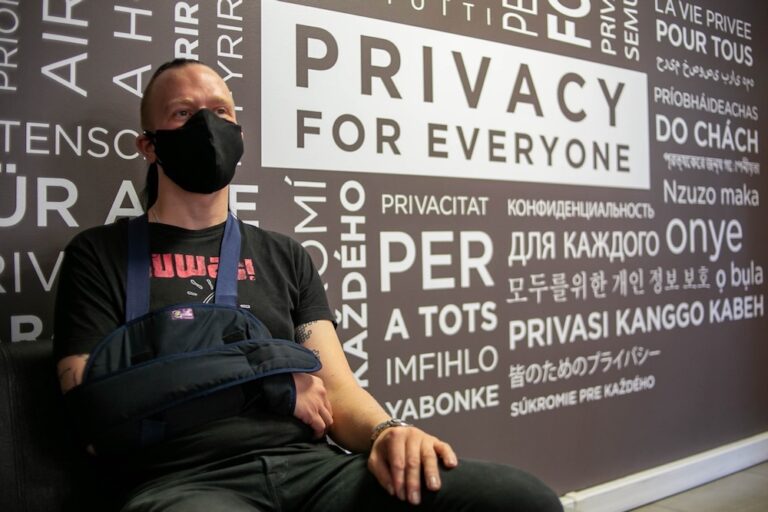President Rafael Correa has confirmed he will take legal action against the newspaper La Hora for the crime of "incitement to hatred" and the dissemination of "ideas based on superiority or racial hatred" after it published a series of photographs depicting the murder of an indigenous Waorani couple.
On Saturday, 6 April 2013, during his No 316 Saturday program Enlace Ciudadano, President Rafael Correa confirmed that he will take legal action against the newspaper La Hora. He made this statement after on 4 April the National Communications Secretariat (SECOM) declared its decision to sue the newspaper for the crime of “incitement to hatred” and the dissemination of “ideas based on superiority or racial hatred” after it published a series of photographs depicting the murder by “spearing” of an indigenous Waorani couple in the province of Orellana.
During his usual Saturday program, the president declared that “there are weeks in which the press goes to a lot of effort to show its lack of ethics, lack of shame” referring to the photographs published by La Hora in which members of the Waorani community can be seen with spears through their skin after a Taromenane group attacked them on 5 March. These events led some Wao to seek revenge. However, there is no official confirmation of the number of casualties among the members of these two peoples who live in voluntary isolation.
Rafael Correa stated that “this news has been abused, it has reached intolerable extremes. For example, the indescribable daily La Hora, owned by the unmentionable Francisco Vivanco (…) look at the pictures they publish to sell a few more papers. This is why we will take action on the matter, because we will not allow any fool, any big-wig, who bought a printing press because he had the money, to feel he is above the State, feel he can do whatever he wants hypocritically invoking freedom of expression when it suits him”.
A statement issued by SECOM, in which it was announced that La Hora would be taken to court, claimed that the images disseminated by the newspaper “would stimulate violence, hatred and desire for revenge between the two communities and may have the effect of promoting racial hatred with unforeseeable consequences”. Because of this, sanctions would be sought in accordance with item 1 of Article 212-A of the Penal Code, which states that anyone who “by any means, disseminates ideas based on superiority or racial hatred” shall be punished with six months to three years’ imprisonment; as well as the provisions of the first unnumbered article of the Chapter on Hate Crimes of the Penal Code. It also infringes the constitutional right to the protection of one’s own image, established in item 18 of Article 66 of the Constitution, and the right to personal and family privacy established in item 20 of that same article.
Fundamedios strongly condemned SECOM’s threat of legal actions and recalled that, according to the provisions of the Inter-American Court of Human Rights information about possible violations of fundamental rights is specially protected and cannot be subject to further liability. Public interest issues included in the story, such as the possible failure of the State to comply with the precautionary measures granted by the IACHR to peoples in voluntary isolation, the acts of violence committed between individuals, and the measures taken by the State to prevent and remedy these situations, should be discussed openly and democratically, as they are closely related to the compliance of public authorities with State obligations on matters of human rights.
It should also be noted that both international human rights law and criminal law establish “incitement” as the constitutive element of the offense typified by article 212-A of the Penal Code, and that due to the restrictive nature of criminal law, that crime cannot be established unless there is certainty of the issuer’s will to provoke among the readers acts of discrimination and violence against a particular group. The content of the information and the context in which it is presented is essential to make this determination. Thus, information on minority groups cannot, for that reason alone, be classified as hate speech.
International jurisprudence has even stated that the concealment or denial of the truth about possible human rights violations can result in real hate speech and an act of racial discrimination, hence the need for the press to report any act that was or is an attack against them.


